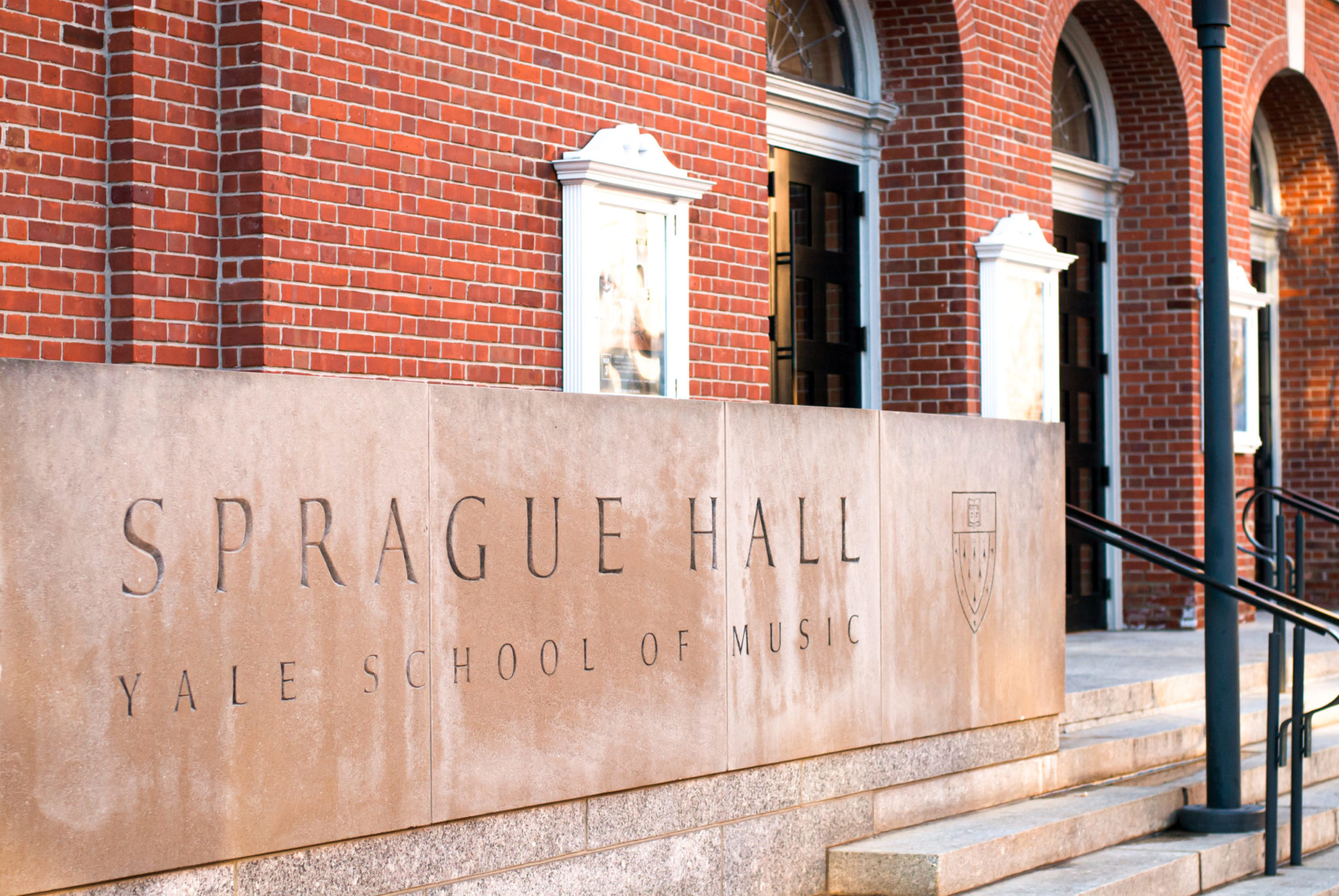
Yale Daily News
Although the University is offering most classes remotely and has banned all public performances, the Yale School of Music created an innovative plan to mix remote and in-person learning — prioritizing safety while allowing students to participate in some form of live ensemble playing, which is essential for their profession.
The School of Music will begin instruction on Sept. 8 and implement a two-block system. During the academic block, from Sept. 8 to Oct. 13, courses will be entirely online. In the performance block, from Oct. 14 to Nov. 25, the School of Music plans to conduct in-person instruction and require most students to live and attend classes on campus. Then, students will finish the semester’s academic work online, from Nov. 25 to Dec. 9. Throughout the semester, students must follow a strict set of safety guidelines. Individual faculty members can decide whether their private lessons and studio classes will be taught remotely or in-person.
“Given the circumstances, I think it’s the best we can do,” said Ann Cho MUS ’21. “But I think it’s just an unfortunate situation where we’re trying to make the best of it.”
The School of Music felt the effects of the coronavirus pandemic early. In March, a musician was exposed to the virus, leading to the cancellation of the 125th-anniversary spring break tour of the Yale Philharmonia, Yale Schola Cantorum and Bach Choir of London.
School of Music Dean Robert Blocker said this cancellation “signaled the reality of COVID-19 for the School of Music.” Even so, he is “hopeful because of the responsible and thoughtful manner [with which] our entire community has engaged in these preparations.”
Since then, School of Music administrators, faculty and students formed committees and met regularly to discuss the program’s immediate future. They decided on the two-block plan for hybrid instruction in order to postpone students’ return to campus until Sept. 30. Students will then quarantine for two weeks before the start of the performance block.
Part of the decision to delay in-person instruction was the School of Music’s 40 percent proportion of international students. When administrators drafted the initial plan, circumstances surrounding international students’ return to campus were unclear. Students and faculty discussed concerns about travel restrictions and visa complications.
According to Blocker, the additional time before in-person instruction would “maximize the opportunity to have more students return to campus for the performance block.”
Cho said that because the school is so small, at just over 200 students, the School of Music needs students to return so they can have a full orchestra and minimize effects on future admissions cycles.
But according to Ye Jin Min MUS ’25, who is from South Korea, some international students are worried about health and safety risks associated with traveling to Connecticut for in-person learning.
Both Min and Cho expressed concerns about housing. Min said it’s difficult to find somewhere to live for only six weeks, especially when many students have already signed leases for the 2020–2021 school year. Cho, who plans to live in on-campus graduate housing, said that she and many others are paying rent or dorm fees even during the academic block, when they aren’t even living on campus.
According to Min, a few students have received permission to complete the performance block online, but she wishes the option were provided earlier.
Blocker said the School of Music and Office of the Deputy Dean are attempting to address each situation individually and honor student requests when possible.
Administrators said the plan’s successful execution depends on a number of factors. Like other students at the University, School of Music students must quarantine until they receive a negative test result, undergo twice-a-week testing, follow social distancing guidelines and wear face coverings in public spaces.
The School of Music also consulted results from an epidemiological report to determine how students could safely use practice facilities. Sprague Hall and 320 Temple Street will be closed to student use. Leigh Hall will be open for lessons and other occasional and administrative activities. Hendrie Hall, which was renovated in 2017, is the only building with adequate ventilation for frequent use.
“We continue to follow and monitor the most recent thinking, data and decisions related to aerosolization — most notably with the singers, woodwind and brass players,” Blocker said. “We will follow the science in determining the social distancing and density issues in the School of Music.”
Students can sign up online for three-hour slots to use Hendrie Hall’s basement practice rooms and must check-in at the front desk before each practice shift. According to Epongue Ekille ’21, who is the operations chief of staff, School of Music student employees who previously oversaw stage managing and ushering duties will be responsible for checking students in, walking them to their assigned room and explaining the sanitation protocol. Each student is required to sanitize their practice room after every use, and the room will remain locked for an hour between uses to allow for air turnover.
Ekille said that Hendrie Hall’s common spaces will be closed. Classroom use will be limited until small-group programs, such as chamber music, begin. As of now, chamber music and orchestra rehearsals will happen in concentrated blocks of time, meeting almost every day for multiple hours each day for the duration of the performance block. String and percussion players must be masked and 6 feet apart, and wind and brass players who cannot play with a face covering must be 15 feet apart.
Min said that although the quality of education may not be the same as that of a regular, fully in-person semester, this fall “is also a time for us to be creative and find a new way to learn.”
Blocker said that the school has not yet begun planning for the spring semester.







